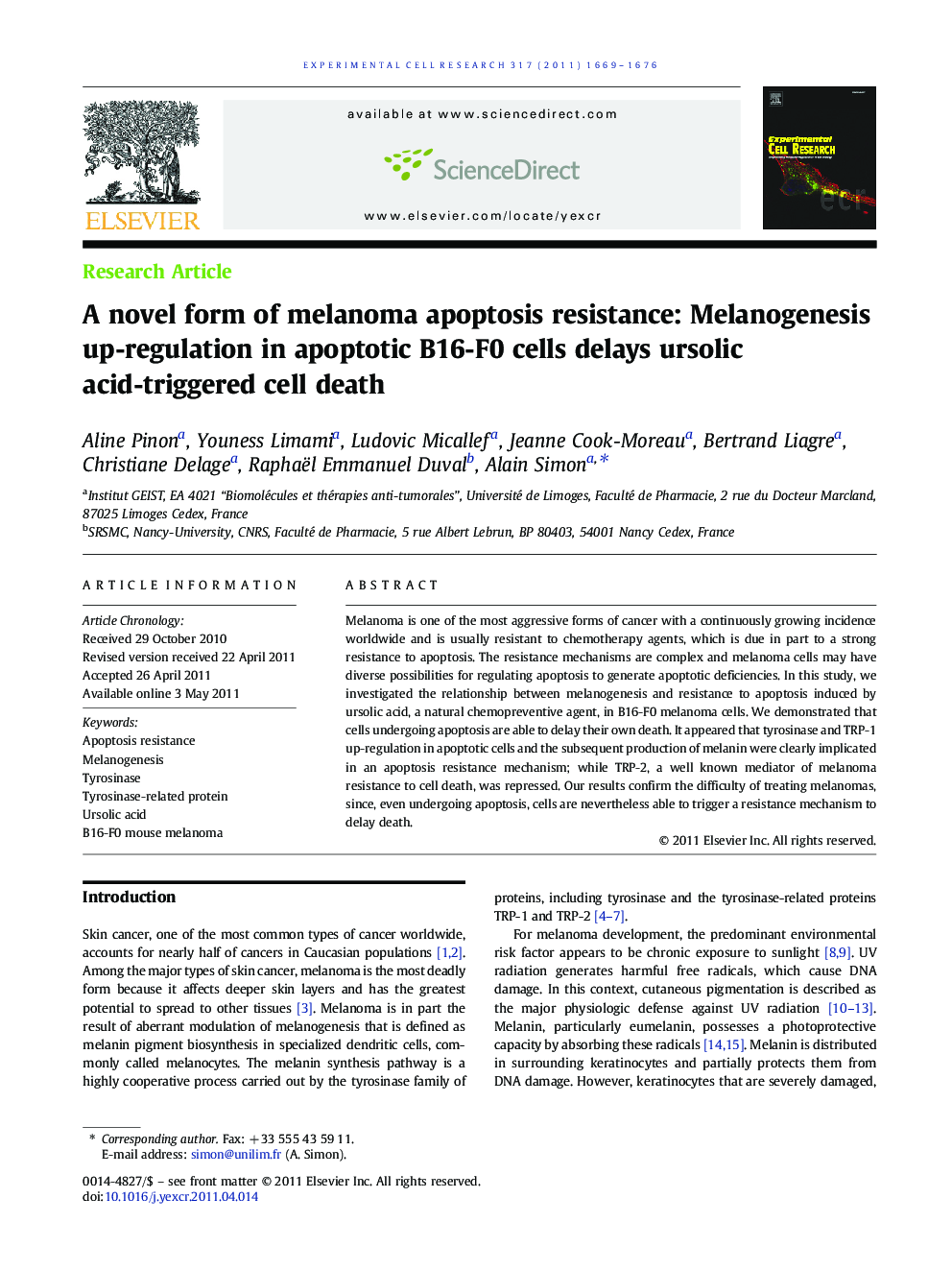| Article ID | Journal | Published Year | Pages | File Type |
|---|---|---|---|---|
| 2130800 | Experimental Cell Research | 2011 | 8 Pages |
Melanoma is one of the most aggressive forms of cancer with a continuously growing incidence worldwide and is usually resistant to chemotherapy agents, which is due in part to a strong resistance to apoptosis. The resistance mechanisms are complex and melanoma cells may have diverse possibilities for regulating apoptosis to generate apoptotic deficiencies. In this study, we investigated the relationship between melanogenesis and resistance to apoptosis induced by ursolic acid, a natural chemopreventive agent, in B16-F0 melanoma cells. We demonstrated that cells undergoing apoptosis are able to delay their own death. It appeared that tyrosinase and TRP-1 up-regulation in apoptotic cells and the subsequent production of melanin were clearly implicated in an apoptosis resistance mechanism; while TRP-2, a well known mediator of melanoma resistance to cell death, was repressed. Our results confirm the difficulty of treating melanomas, since, even undergoing apoptosis, cells are nevertheless able to trigger a resistance mechanism to delay death.
